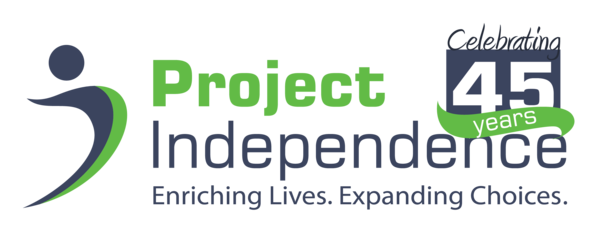 Donna Voss joined Project Independence (PI) in July of 2018 as a Community Support Specialist in the Independent Living Department. In June of 2019, she was promoted to Independent Living Area Manager – North County, where she now supports clients with independent living and supported living services.
Donna Voss joined Project Independence (PI) in July of 2018 as a Community Support Specialist in the Independent Living Department. In June of 2019, she was promoted to Independent Living Area Manager – North County, where she now supports clients with independent living and supported living services.
When did you begin working at PI?
I started with PI seven years ago.
What do you do in your spare time?
I have a 26-year-old daughter with intellectual disabilities who I love and adore and spend as much time as I can with. I have two other daughters, one is 24 and the other is 40 and a schoolteacher for special needs individuals.
I also help feed the homeless and work with people who struggle with drug addiction. I organize fundraisers within our community for the homeless and addicts. I also speak at conventions and schools for people who struggle with challenges in their lives. I also love to ride my Harley with friends. I stay close with family and love them.
What drives you / motivates you to help others?
I struggled a lot as a child and teenager, so it is my passion to help others find their own way. l try to lead them on the right path. Growth and learning experiences and accepting who we are represent the keys to freedom and growth.
What’s your favorite thing about working at Project Independence?
Working at Project Independence comes very naturally for me. Helping clients (if willing) to rise above and reach their goals is rewarding to me. I like walking side by side with them so they succeed. Giving my clients hope and making them laugh is so important.
What are your favorite client successes?
One of my clients was sober when I first started working with him. As I became a PI area manager, I kept him on as my client. Then I noticed his behavior was changing and he was a no show when we were to meet. His mother said he was going to the bank often to get money. At this time, I suspected he was using drugs and drinking. I sat with him on many occasions and started to take him to AA meetings, but that was not enough. Finally he got a 30–day notice to quit or pay, and at that point he could not pay. I asked him if he could just not use or drink for a few days and told him I knew someone who owns a sober living facility that might accommodate him. Fortunately, he did what he was asked to do. On October 31, 2021, I took him there, and he has been there to this day, sober and working through an AA program. I still work with him.
I have another client diagnosed with schizophrenia who was not doing well on his medications when I was first started working with him. I spent many hours with him and his parents trying to find a solution. I suggested he see a new doctor and went to every visit with him and his parents. He seemed to get a bit better, but not much. He began leaving his apartment to sleep in a parking structure because the voices in his head were telling him he could not keep living at home. Soon afterward, I located another doctor who I believed could help him. This doctor lowered some medications and put him on a new monthly ejection. With new medical support, he has done a 360. He is doing very well, and his parents are quite pleased.
Another of my clients was about 30 years old when I started working with him. At that time, he was afraid of everything. He had been living with his cousin for many years because his mother had passed away. When his cousin started going out frequently and leaving him home alone, he would call me every night crying and scared. I helped him begin volunteering at the local fire station because his dream was to be a fireman. After further work with him, I talked to him about living on his own if he really wanted to. At first, he did not think he could do it, but I encouraged him to become more independent. We found a great place for him at the Vista Del Rio apartment community where has met new friends, and even started a job at Amazon. He has been on his own now with PI’s help for about four years.
 What tips would you give to other people looking to work in your field?
What tips would you give to other people looking to work in your field?
Understand exactly what you will be doing. Get to know your clients as well as possible before suggesting anything new for them. Know their weak and strong points.
What are three things you think the general population needs to know about people with developmental disabilities?
See a person first, not a disability. If you want to speak with someone with an apparent developmental disability who is accompanied by a staff support person, address the person with developmental disability first. If the person struggles, staff will help. DO NOT talk to people with developmental disabilities as if they are children. Instead please be understanding and patient.



